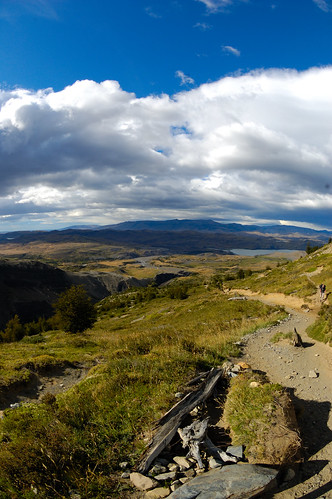Today’s consumerism has made possible an extended childhood, justifying selfish pursuits and immediate gratification in the guise of self expression, customer satisfaction and economic growth. However, many seem to be waking up from their shopping frenzy, realizing that it is perhaps time to grow up.*
But I don’t think our only problem is that we act too much like children—we also need to become more like children. I don’t want to idealize childhood innocence—I don’t believe it exists as any parent would note how quickly a child learns how to say “No!” and “Mine!”. However, there is a quality of being a child, that seems to get lost in the endless deluge of evaluation and judgment to follow from peers, parents, and authority figures over the course of one’s coming to age.
When I flipped through short stories I wrote in elementary school, I remember how free I felt printing out those characters on paper, and how I never wondered whether or not it was actually good writing. I wrote because I loved to write and not because I desired any acclaim or approval from others.
I remember spending hours playing make-believe in my own backyard and journaling fantasy worlds in my diaries, unashamed of what a silly “waste of time” that must have all been. It was fun and it didn’t matter what the rest of the world thought.
I remember crawling into my parent’s bed on a Saturday morning, to cuddle and feel safe. I was free from worry about whether or not they would put food on the table or a roof over my head. It would be done. I could depend on them.
Where has all this freedom disappeared to? When did it get lost in all the worries of the world? Now instead, I am stuck in the adult world of second guessing, pride and shame, doubting, mistrust and approval-seeking. Childish in my wants and complaints, but unchildlike in my faith and hope.
I don’t really want to grow up and become an adult. That is not a desirable solution for my childishness. I don’t want to feel like I am in control and capable of managing my own life, hiding my insecurities with a paper fort of resume achievements. In fact, there are moments when I am quite glad that my entry into the “real world” has been beset by confusion and surprise, instead of success and clear direction. I am glad because it has given me the opportunity to become smaller and more child-like, so that God can become larger.
* Some interesting articles on this topic:
From Adbuster’s Too Comfortable to Take Risks:
Social critic Mariko Fujiwara blames the breakdown on the collapse of the family system, among other factors. The baby-boomer parents achieved a level of middle-class comfort. They had fewer children so they could sustain that comfort – and they gave their children everything, except the strength and guidance to navigate the myriad choices and uncertainties of the twenty-first century.
“Japanese kids today feel that if anything goes wrong for them, it will be disastrous for the entire family,” says Fujiwara. “So they don’t even want to try. There is a mismatch between their aspirations and their willingness to work to achieve them ‘no matter what.’ They thought material and digital connections would be enough, but they’re discovering that they and their parents were wrong. Today’s Japanese kids are incredibly unhappy.”
What if Japan, the face of the future, is showing us who we are becoming – as a kind of proverbial ‘canary in a coal mine,’ a Cassandra of our trans-cultural futures. Consumerist, protectionist Japan is now celebrated worldwide as the Asian arbiter of cool, even chic. But at home, endless consumer choice and cleverness is starting to look hollow.
Evangelion auteur Hideaki Anno, now 47, believes that the problem may not lie exclusively with Japan’s younger generation. Instead, he says, there is no adulthood for them to grow into. “We are a country of children,” Anno recently told a reporter from The Atlantic Monthly. “We don’t have any adult role models in Japan.”
I predict that the dilemma facing Japan – how to create a sophisticated adult culture in a capitalist society that has less need or room for one will – become commonplace in the coming years.
From Against August from David Warren Online (article courtesy of Nick):
It might even be said that the “rights of childhood” -- I am trying to form this idea in contemporary terms -- have been transferred, by successive Acts of Parliament, from children to the childless.
What are these rights? Chiefly, the right to play, often away from mature supervision; the right to breathe, away from traffic and similar threats; the right to live in a fantastical world of one’s own invention; the right to refuse responsibilities; the right to demand entitlements, and to receive the fruits of others’ sacrifices; the right to be taken care of, and empathized with, whenever something goes wrong.
These were all, in previous generations, among the solemn rights of children, but today belong almost exclusively to a much older class with large disposable income, which is to say, “Dinks” (double income, no kids). To which we might add, “Shinkeroaks” (single high income, no kids, eschewing relationships of any kind). And I have noticed that the sound of a noisy child is extremely unwelcome in the environments they have created for themselves.
While this last remark might be taken as carrying a political edge -- and it is true that the (mostly urban) childless provide the demographic backbone for all “liberal” and “progressive” parties today -- it should be said explicitly that the Left has no monopoly on dinkish and shinkeroaksome behaviour. It is available to anyone who wants to buy into what the late Pope called “the culture of death,” in which we live only for ourselves, and for the moment.
Adbusters also has a feature article on hipsters, the Dead End of Western Civilization, the epitome of today's culture that combines childish consumerism with adult cynicism:
An artificial appropriation of different styles from different eras, the hipster represents the end of Western civilization – a culture lost in the superficiality of its past and unable to create any new meaning. Not only is it unsustainable, it is suicidal. While previous youth movements have challenged the dysfunction and decadence of their elders, today we have the “hipster” – a youth subculture that mirrors the doomed shallowness of mainstream society.
...
We are a lost generation, desperately clinging to anything that feels real, but too afraid to become it ourselves. We are a defeated generation, resigned to the hypocrisy of those before us, who once sang songs of rebellion and now sell them back to us. We are the last generation, a culmination of all previous things, destroyed by the vapidity that surrounds us. The hipster represents the end of Western civilization – a culture so detached and disconnected that it has stopped giving birth to anything new.
Speaking of hipsters, have you checked out the hipster Olympics yet? Or the appropriately named Stuff Hipsters Don't Like.






